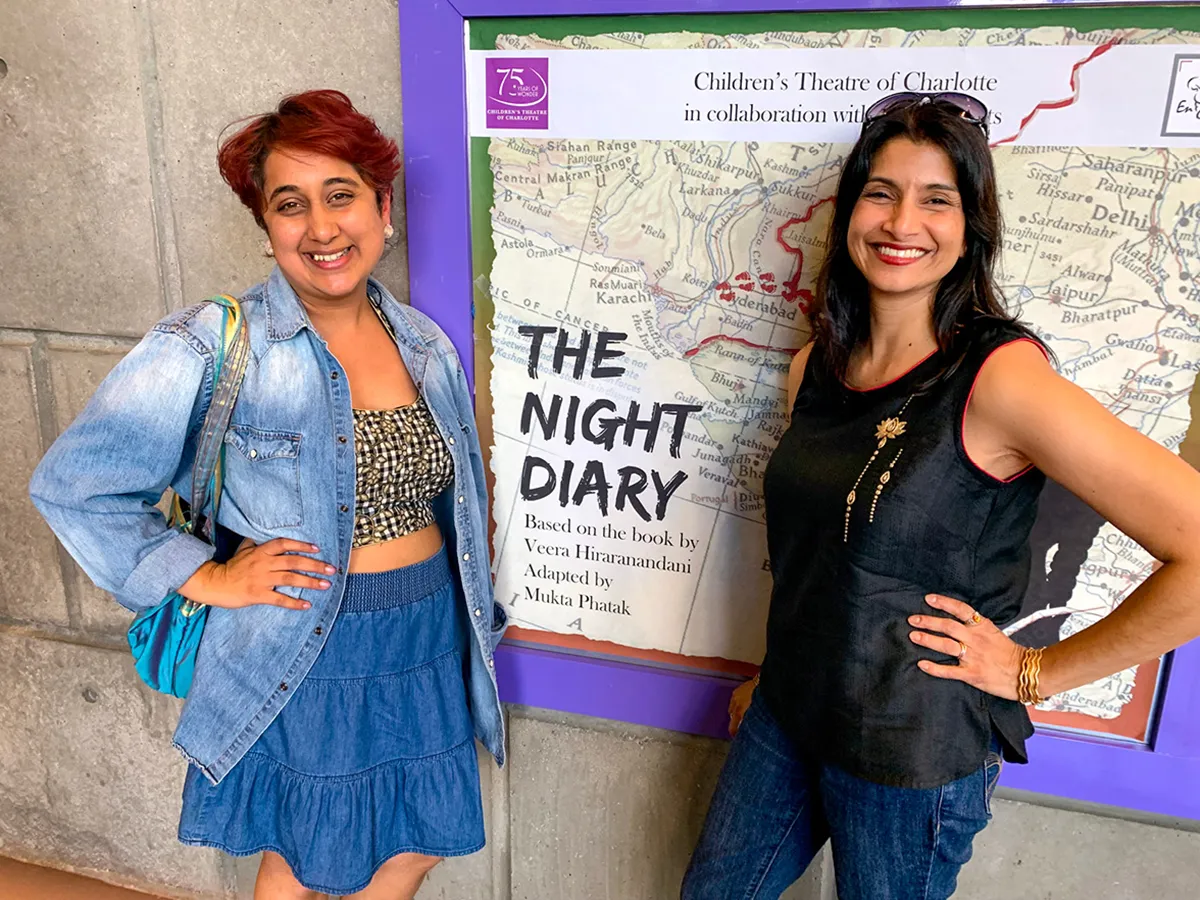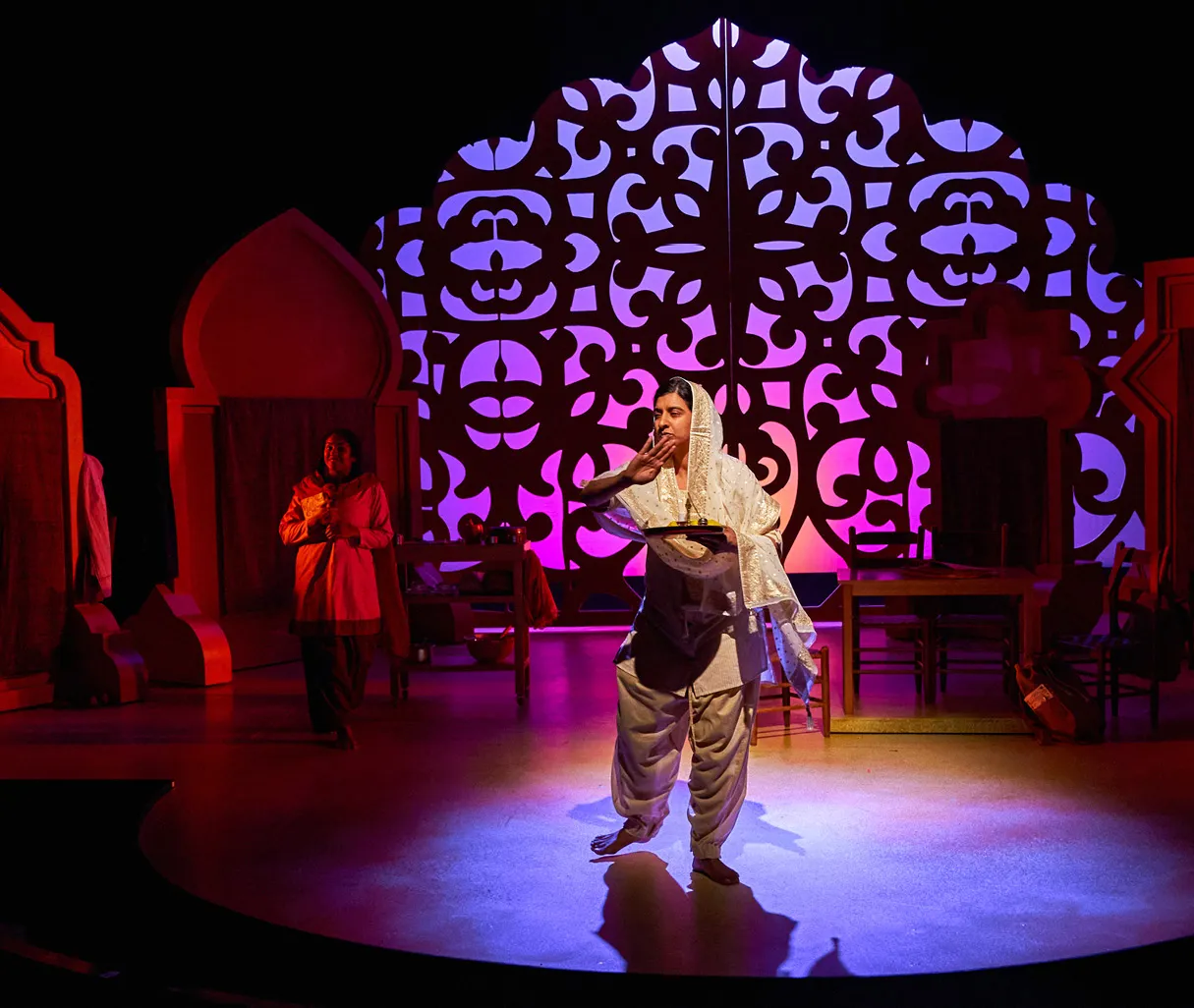From Page to Stage


t started with a library book Professor Anjalee Deshpande Hutchinson, theatre & dance, read with her daughter. Little did she know it would become a project that’s drawn Hutchinson and Mukta Phatak ’18 into a creative partnership that’s helping Indian and Pakistani families grapple with a tragic era in world history.
Veera Hiranandani’s The Night Diary, a chapter book written for fifth- through eighth-graders, tells the story of two children caught up in the Partition, a monumental event in Indian and Pakistani history in 1947. When the British discontinued their control over much of South Asia, the vast territory was divided into two independent countries — Hindu-majority India and Muslim-majority Pakistan — which uprooted an estimated 18 million people and set off a horrific period of violence that caused at least 2 million deaths. Rarely taught in history classes in America, it’s still known as the largest forced human migration in recorded history.
Hutchinson was struck by the story, in which twins Nisha and Amil, born to a Muslim mother who died in childbirth and a Hindu father, are forced to flee with their father to escape imminent persecution. Nisha tells her late mother what’s happening by writing in her diary every night, struggling with issues of identity, belonging and home.
Director Seeks Playwright

At first, Hutchinson wanted Phatak to act in the production. With her playful nature and dimpled smile, “she would have made a delightful version of Nisha,” Hutchinson says. But after graduating from Bucknell, where Phatak majored in theatre, she moved to New York City and joined the Actors’ Equity Association theatre union. CTC isn’t an Equity theatre, so Phatak couldn’t perform there.

Despite delays caused by COVID-19, Hutchinson and Phatak kept at it, getting the play through a weeklong workshop in July 2022, then finally opening in March 2023. Families who came to the play, particularly those of South Asian descent, were responsive, often approaching the actors after performances to talk about their own family’s experiences. Parents used the opportunity to share something with their children that is difficult to discuss given the generational trauma, though a topic that is hugely important given the historical impact. In the theatre lobby, families stopped by a big map of Pakistan and India that traced the story’s journey and used it to show their own family path.
“Anjalee made me feel empowered to use my voice to tell a story that isn’t taught in schools here,” Phatak says. “Seeing South Asian students attend the performances amongst their non-South Asian classmates made me feel like I was giving them something I didn’t have as a kid.”
For Hutchinson, the play has been an opportunity to experience her former student in a new light. She stays in touch with her students when they move on, but she rarely gets to work with them.
“I saw the possibilities in her,” she says. “But to see and get to work with the artist she has become? This is a gift.”